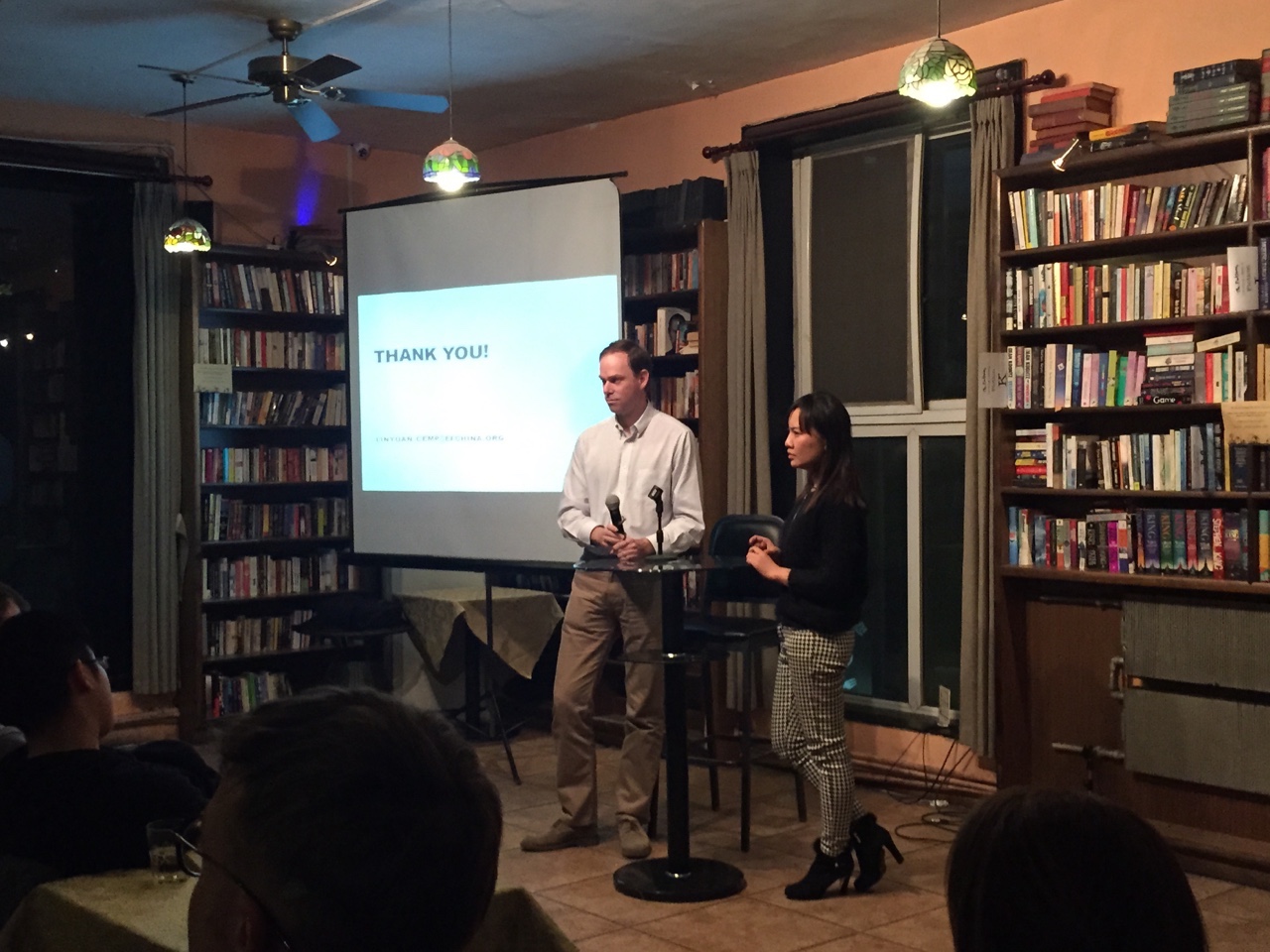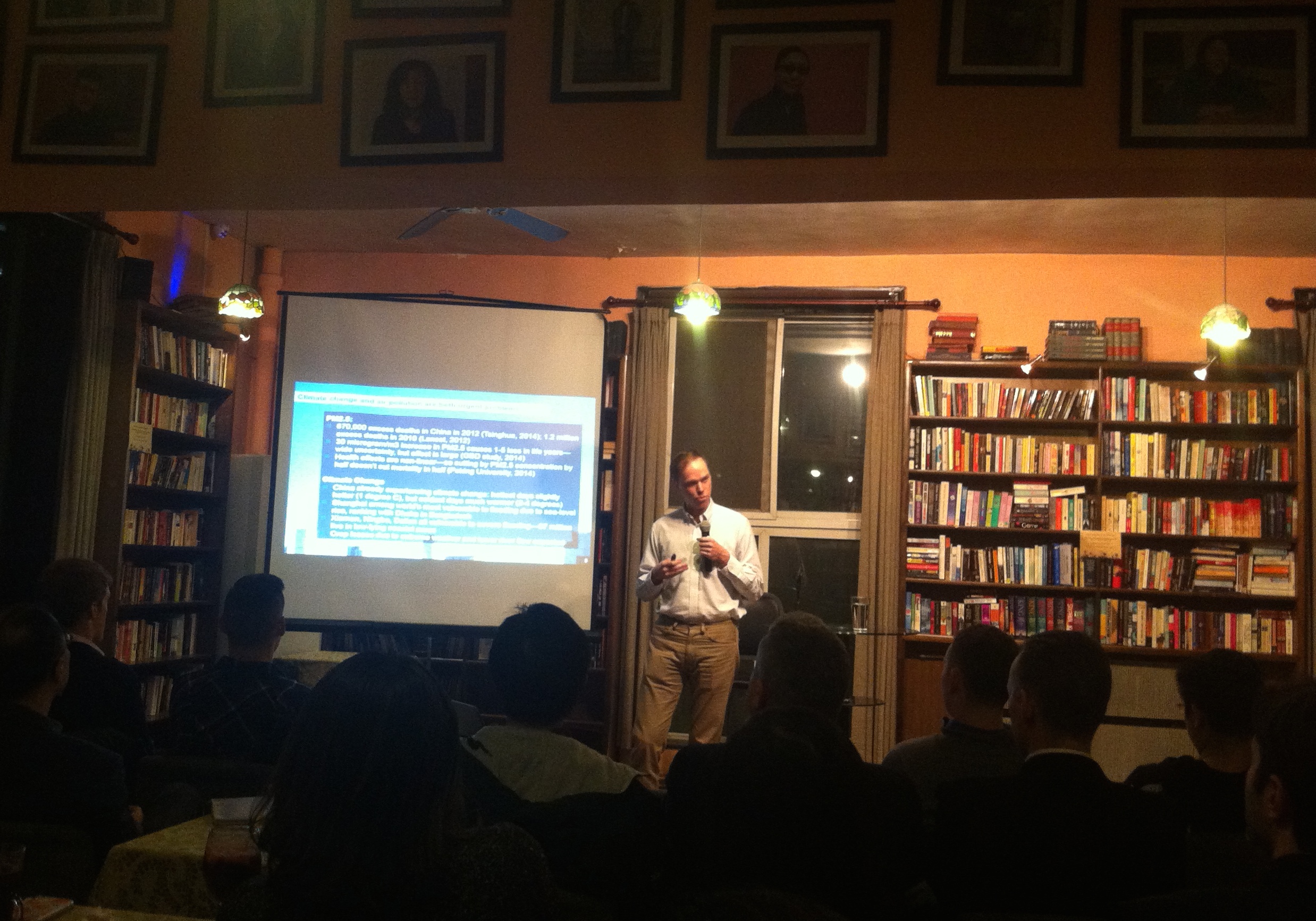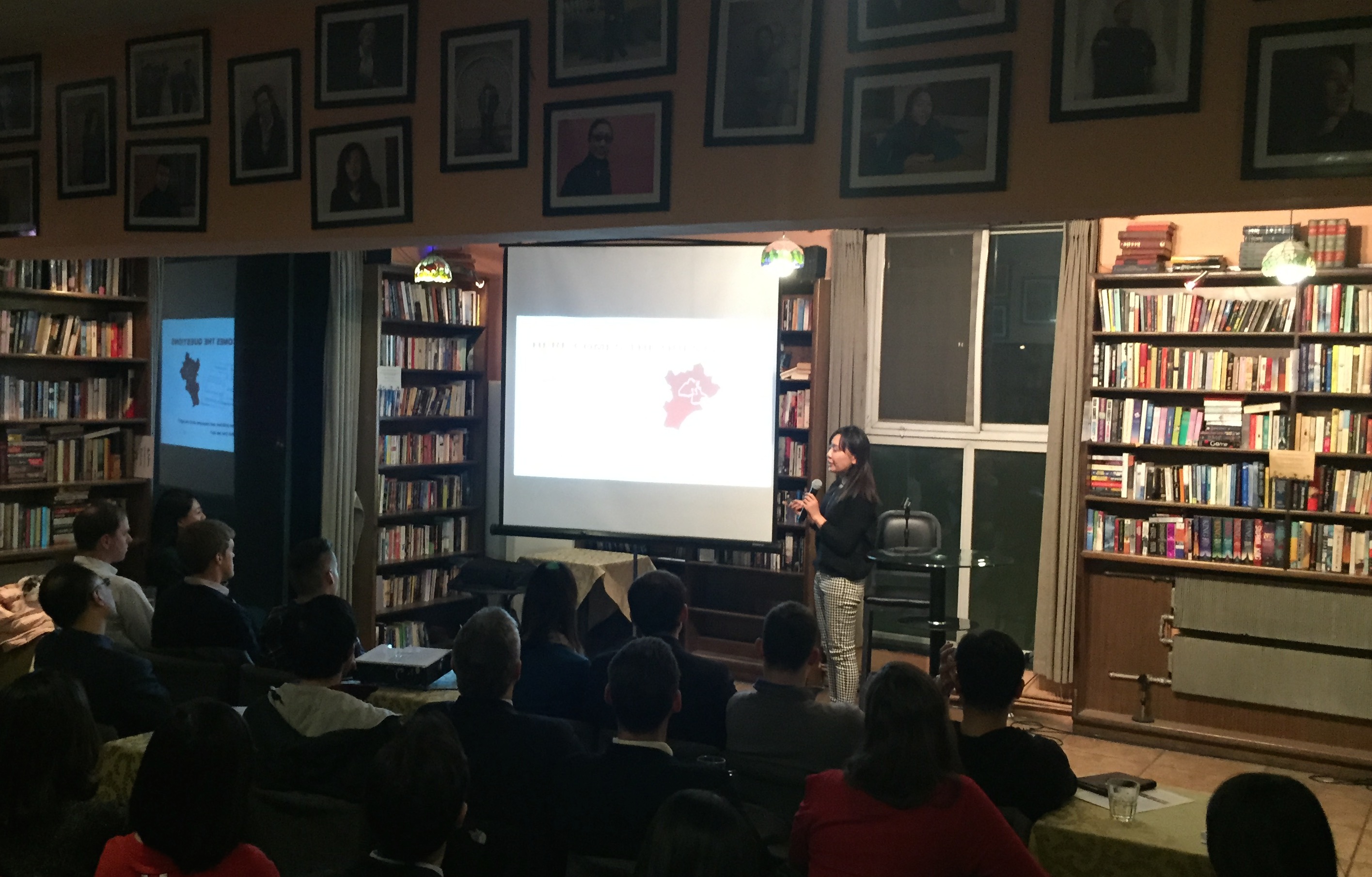Can GDP grow while also improving air quality in the Beijing-Tianjin-Hebei (JJJ) region? Anders Hove, Associate Director of Research at the Paulson Institute, spoke to this topic at a Green Drinks event in Beijing on February 10, sharing early insights from the Climate Change & Air Quality Program’s research in this area. Also speaking at the event was Yuan Lin, a consultant with Energy Foundation’s China Environment Management Program, who spoke about the progress and gaps remaining for the JJJ region to achieve its PM2.5 targets by 2017, as outlined in the central government’s 2013 Clean Air Action Plan.
“The hypothesis we are testing is that there really is no conflict between policies that affect air pollution and climate change, and the economy,” Hove said. “China’s shift toward a more consumer-driven, innovative economy, all goes along well with pursuing policies that are good for the environment.”

The Paulson Institute’s Climate Change & Air Quality Program is researching how market forces can play a larger role in improving air quality and mitigating climate change, focusing first on six major areas: the power sector, demand response, emissions trading, building-energy disclosure, transportation policies and green finance.
Lin shared research from Energy Foundation’s work with the JJJ region on determining if the 2017 targets for reducing PM2.5 by 25% can realistically be met with current policy, and if not, how the policies can be improved. The conclusion of her team’s research so far shows that there is a chance the targets could be met under certain circumstances, with some changes in the current policy. For example, Lin’s recommendations included requiring a ban on the use of coal with sulfur content higher than 0.6%, ensuring all heavy duty vehicles are equipped with Diesel Particular Filters (DPFs), as well as increasing Hebei’s target for coal consumption reduction to 60 million tons from the current 40 million tons.







